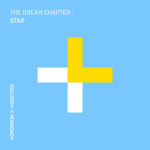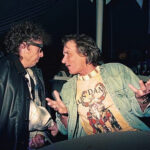Drake’s “Hotline Bling” became an instant sensation upon its release, not just for its catchy beat but also for its relatable lyrics about modern relationships and communication. At its heart, the song revolves around a simple yet evocative phrase: “hotline bling.” But what do the “Hotline Bling” lyrics truly mean? Let’s delve into the verses and chorus to unpack the emotions and story behind this iconic track.
Verse 1: Observing Change from a Distance
The song opens with the immediately recognizable lines:
You used to call me on my cell phone
Late-night when you need my love
Call me on my cell phone
Late-night when you need my love
This repetition emphasizes a past intimacy and direct line of communication. The “cell phone” represents personal connection, and “late-night when you need my love” suggests a relationship built on emotional and perhaps physical dependence.
Drake then contrasts this past with the present:
Ever since I left the city, you
Got a reputation for yourself now
Everybody knows and I feel left out
Girl, you got me down, you got me stressed out
Leaving the city symbolizes a physical and emotional distance growing between them. He hears about her “reputation” indirectly, feeling “left out” and disconnected. This creates a sense of anxiety and stress, as he’s no longer privy to her life in the same way.
‘Cause ever since I left the city, you
Started wearing less and goin’ out more
Glasses of champagne out on the dance floor
Hangin’ with some girls I’ve never seen before
These lines depict a noticeable shift in her behavior. “Wearing less and going out more” suggests a newfound freedom and perhaps a desire for attention. The imagery of “champagne” and “dance floor” paints a picture of a more active social life, contrasting with the intimate “late-night” calls of the past. “Girls I’ve never seen before” further highlights his feeling of being an outsider in her new life.
The Chorus: The Lingering “Hotline Bling”
The chorus is the core of the song’s message and its most memorable part:
You used to call me on my cell phone
Late-night when you need my love
Call me on my cell phone
Late-night when you need my love
And I know when that hotline bling
That can only mean one thing
I know when that hotline bling
That can only mean one thing
The repetition of the opening lines reinforces the nostalgic yearning for the past connection. Then comes the crucial line: “And I know when that hotline bling / That can only mean one thing.” “Hotline bling” becomes a metaphor for a notification or a call – something that signals her reaching out. However, the tone is not celebratory. The phrase “only mean one thing” implies a cynical interpretation of these calls. It suggests that the “hotline bling” no longer signifies genuine affection or need for his love, but something else, possibly less sincere or more transactional. The ambiguity of “one thing” is deliberate, leaving the listener to wonder about Drake’s suspicions.
Verse 2: Distance and Changing Dynamics
Verse 2 continues to explore the widening gap between them:
Ever since I left the city, you, you, you
You and me, we just don’t get along
You make me feel like I did you wrong
Going places where you don’t belong
The repetition of “you” emphasizes the blame he places on her. “We just don’t get along” is a stark statement of their fractured relationship. “You make me feel like I did you wrong” reveals his insecurity and confusion. “Going places where you don’t belong” is possessive and judgmental, suggesting he believes her new lifestyle is somehow inappropriate or beneath her.
Ever since I left the city, you
You got exactly what you asked for
Running out of pages in your passport
Hangin’ with some girls I’ve never seen before
“You got exactly what you asked for” is accusatory, perhaps implying she desired this newfound freedom and social life. “Running out of pages in your passport” suggests she’s traveling and living a glamorous life, further contrasting with their past intimacy. The repetition of “Hangin’ with some girls I’ve never seen before” reinforces his feeling of alienation and unfamiliarity with her current world.
Bridge: Jealousy and Loss of Control
The bridge delves deeper into Drake’s internal conflict:
These days, all I do is
Wonder if you’re bendin’ over backwards for someone else
Wonder if you’re rolling up a Backwoods for someone else
Doing things I taught you, gettin’ nasty for someone else
This section is filled with jealousy and insecurity. He’s consumed by wondering if she’s sharing intimate moments and behaviors – things “he taught her” – with someone else. This highlights a sense of possessiveness and a fear of being replaced.
You don’t need no one else
You don’t need nobody else, no
Why you never alone?
Why you always touching road?
Used to always stay at home
Be a good girl, you was in the zone
Yeah, you should just be yourself
Right now, you’re someone else
These lines reveal a desire to control her behavior and a longing for her past self. “You don’t need no one else” is possessive and controlling. He questions why she’s “never alone” and “always touching road” (slang for being out and about), contrasting it with her past behavior of staying “at home” and being a “good girl.” He idealizes her past self (“you was in the zone”) and criticizes her present (“Right now, you’re someone else”), unable to accept her evolution after their separation.
Conclusion: Ambiguity and Lingering Questions
“Hotline Bling” lyrics capture the complexities of a relationship changed by distance and shifting dynamics. The song is not just about heartbreak, but about the confusion, jealousy, and possessiveness that can arise when a relationship evolves. The repeated “hotline bling” serves as a constant reminder of the past connection and a source of anxiety about its current, ambiguous meaning. Drake masterfully uses simple language and repetition to convey deep emotions, making “Hotline Bling” a timeless exploration of modern relationship anxieties.


